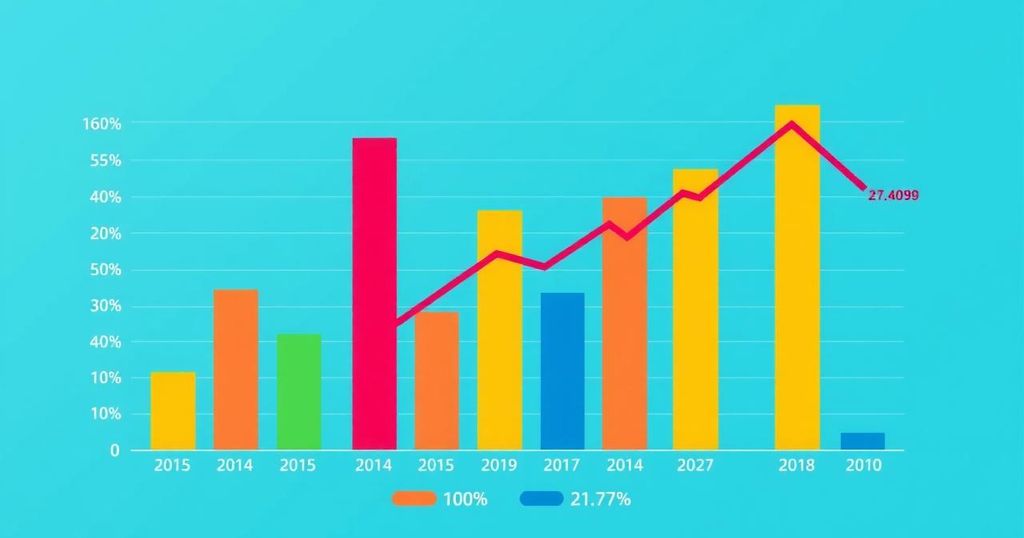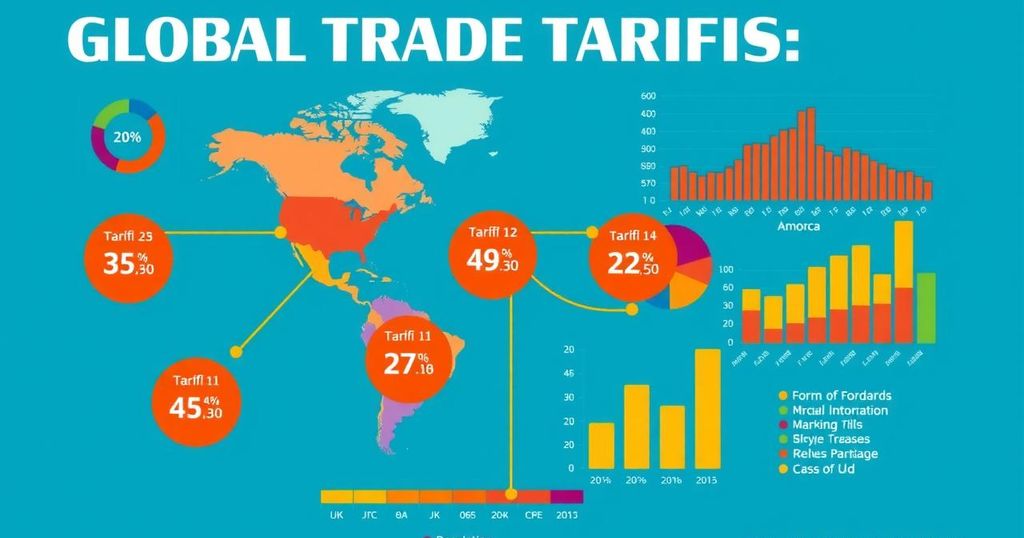Nigerians have expended N21.51 trillion on imported goods in the last four years, including N6.77 trillion on foodstuffs. Despite efforts to increase local production, import dependency continues to escalate, with significant spending increases observed in various categories such as plastics, textiles, and animal products.
A recent report from the National Bureau of Statistics reveals that Nigerians have spent a staggering N21.51 trillion on various goods, specifically food items, over the past four years. This expenditure underscores Nigeria’s persistent reliance on imports, despite government efforts to enhance domestic production.
Of the total import expenditure, N6.77 trillion was allocated to prepared foodstuffs, beverages, spirits, vinegar, and tobacco. Notably, the annual spending in this category has escalated from N594.08 billion in 2020 to N2.79 trillion in 2024, illustrating a significant upward trend.
The report also highlights that the importation of live animals and animal products amounted to N3.64 trillion during this period. Notable increases are evident, with N454.52 billion spent in 2020, peaking at N1.49 trillion in 2024.
Other import categories, including footwear and related accessories, saw expenditures increase from N23 billion in 2020 to N65 billion in 2024, totaling N167 billion over four years.
Products made of plastic and rubber represented the highest import spending, totaling N7.72 trillion, with expenditures growing significantly year-on-year, especially from N609 billion in 2020 to N3.46 trillion in 2024.
The textile sector, which Nigeria previously excelled in, recorded N1.93 trillion in imports over four years, with a rise from N183 billion in 2020 to N726 billion by 2024.
Additionally, imports of wood and related products reached N909 billion, with an increased pattern noted from N52 billion in 2020 to N517 billion in 2024.
Finally, the country spent N373 billion on raw hides, skins, and leather products, reflecting a steady rise in expenditure from N30 billion in 2020 to N157 billion in 2024. These alarming figures illustrate Nigeria’s ongoing dependence on imports, despite established policies aimed at bolstering local production.
In summary, the data from the National Bureau of Statistics encapsulates Nigeria’s mounting dependence on imports, particularly in foodstuffs, plastics, textiles, and raw materials, despite efforts to encourage local production. The trend exhibits an alarming rise in expenditures across multiple categories, indicating a critical need for strategic changes to reduce reliance on imports and enhance domestic manufacturing capabilities.
Original Source: punchng.com




